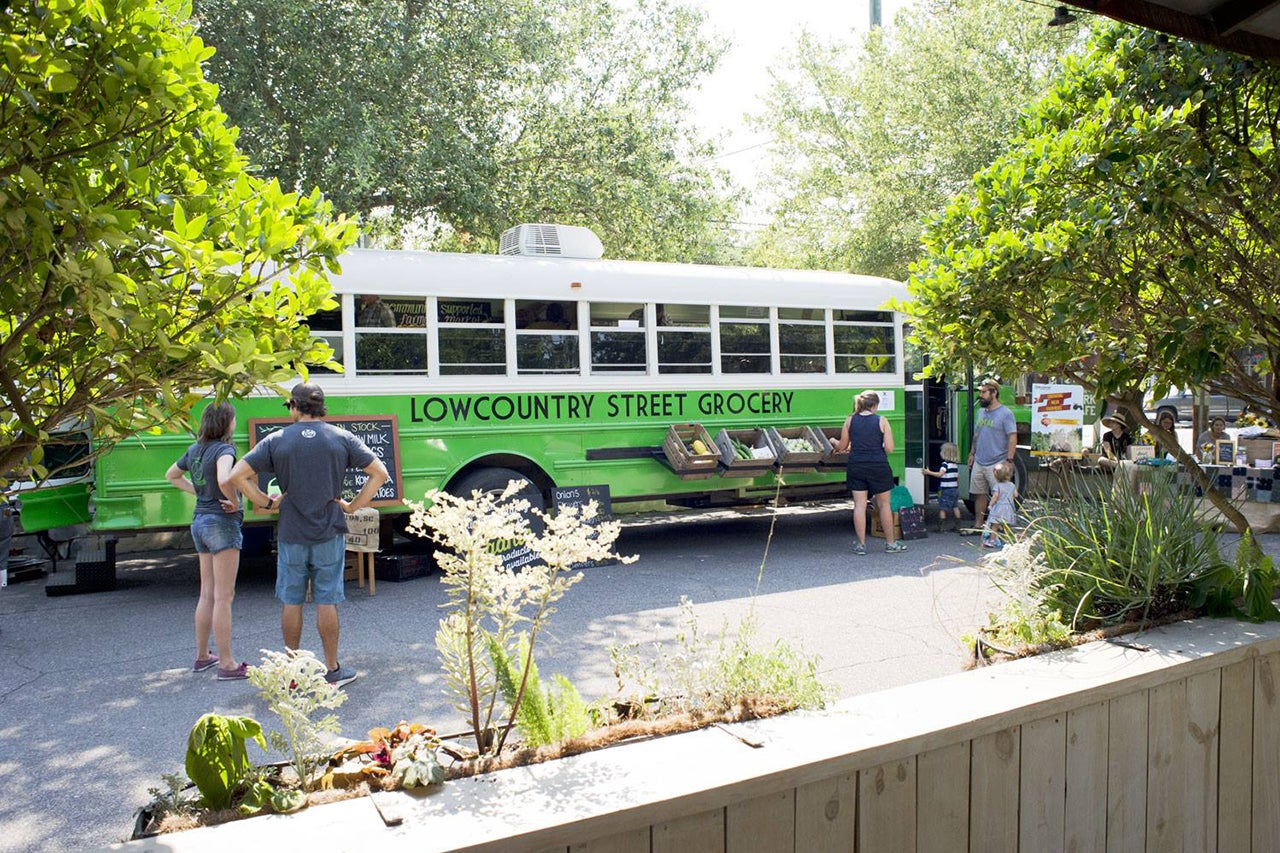With the recent closure of the Meeting Street Bi-Lo, and only two grocery stores remaining to serve downtown Charleston, city leaders jumped into action to ensure that East Side residents would continue to have easy access to foodstuffs. Part one of their solution is to bus residents to Food Lion in the North Central neighborhood. Part two is to try to bring in a mobile farmers’ market. Enter Lowcountry Street Grocery (LSG).
College of Charleston alumni Lindsey Barrow ’10 and Kate DeWitt ’11 started LSG as a solution to address disparities in Charleston’s food economy. Barrow and DeWitt came up with the idea to put produce on a bus and park it in areas that lack access to fresh produce.

CofC alumni Kate DeWitt (left) and Lindsey Barrow launched a Kickstarter campaign in 2015 to get Lowcountry Street Grocery on the road.
The duo says that once the news broke about Bi-Lo, they immediately began making plans for how they could begin to fill the gap. Soon, they were in talks with city officials about a possible partnership aimed at offering East Side residents a source of fresh produce.
RELATED: Read how Lowcountry Street Grocery was launched through a Kickstarter campaign.
“It was a powerful moment to get a call from City Hall because the folks there recognize your business as the ‘go to’ for such a major event,” says Barrow. “But after meeting with the Mayor, we now realize that the collaboration with the city is really just an idea at this point. For our part, we’re staying focused on responding to and working side by side with community members from the East Side, and coming up with a schedule and service that will really work for people.”
LSG has already made a few voyages, and the reaction from the community has been overwhelmingly positive, says DeWitt. “People are busy. People want good food and want good food they can afford,” she says. “We’re finding that our effort to meet all those needs is something that resonates with everybody. We’re also finding out that there is even more demand for LSG’s offerings than anticipated. Almost every market sells out and anything left behind is quickly gobbled up via our Community Supported Grocery bundles. At a recent College of Charleston stop, students in between classes lined up in front of the bus and bought us out of strawberries in 30 minutes.”
Barrow and DeWitt say they want people to get closer to the food they eat and to better understand how it came to be.
“We can do that now to some extent in restaurants and a small handful of food retail experiences, but our vision has been to create a true community-supported, local grocery store that is capable of meeting people where they are, both geographically speaking as well as economically, socially, etc.,” says Barrow. “The idea of a mobile grocery store/farmers’ market is catchy and fun-sounding, but there’s more to it than that. Food deserts are food deserts exactly because of the types of brick and mortar food outlets they can and can’t attract. The best way to keep a consistent outlet for these communities that will remain viable? Make it mobile, so it can visit other locations, too, remain nimble, and responsive to shifts in demand and in need. There’s actually a fairly complex and calculated assessment of local food economics that drive the idea of our model. It’s what Kate and I have studied and practiced for years, and it’s fun to watch it taking form via LSG.”





